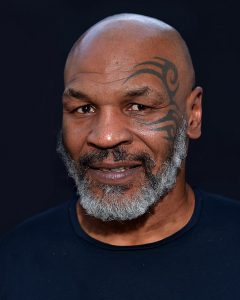
Mike Tyson (2019) whose tattoo, created by artist S. Victor Whitmill, was reproduced in the ‘The Hangover 2’ (Image Credit: Glenn Francis CC BY-SA 4.0 via Wikimedia Commons)
As per s. 3 of the Copyright Act in Canada, the owner of the copyrighted work has the sole right to produce and reproduce work or any substantial part thereof [1].
These works include artistic works, a category which includes tattoos created by tattoo artists and inked on satisfied and unsatisfied customers around the world.
Although, there has been no case to date in Canada ruling on the extent of copyright protection available to tattoo artists, there are a plethora of cases in the US and Europe. What recourse does a tattoo artist have when a client decides to have their likeness reproduced (e.g. magazine, video game) in a manner which displays the tattoo that is subject to copyright protection?
I came across a recent article published on Reuters [2] regarding a US District Court for the Southern District of Illinois judgement that awarded tattoo artist, Catherine Alexander, $3,750 in damages against the World Wrestling Entertainment Inc. and Take-Two Interactive Software Inc. for recreating tattoos she made for wrestler, Randy Orton in the WWE 2K video-games series without her permission.
The Jury rejected WWE and Take-Two’s defence that the game made fair use of the tattoos. However, the Court declined to award Alexander any profits from the games that she said were attributable to her work. Perhaps this is unsurprising given you would be hard pressed to find any would be purchaser of the game that refused to purchase the game because a tattoo was missing. Unfair?
From my perspective once the tattoo is placed on your body, the tattoo resembles something more to a person than say a photograph to a photographer, who has the photograph replicated in a magazine. My take on this is similar to the position that the Belgian Court of Appeal took in JDH v. HM, a 2009 ruling [3]. The Belgian Court ruled that while the tattoo artist did own copyright in his tattoo design, this right was limited by the personality rights of the tattooed person.
The tattoo in this sense essentially becomes a part of your body. How do you feel this form of artistic work should be assessed in balancing artistic incentive to create and the user’s right to display the tattoo in a manner they see fit?
[1] Copyright Act, RSC 1985, c C-42, s 3.
[2] https://www.reuters.com/legal/litigation/wwe-video-game-maker-owe-artist-depicting-wrestlers-tattoos-jury-says-2022-09-30/
[3] JDH v JM, (2009) 2007/AR/912 (Juridat) at para 9 (Ghent CA).
 Communications Law
Communications Law